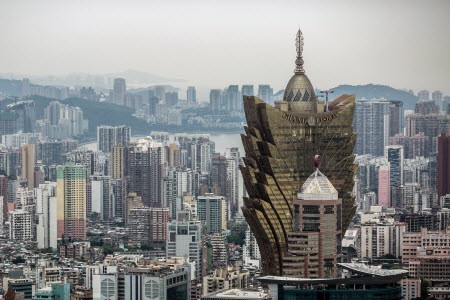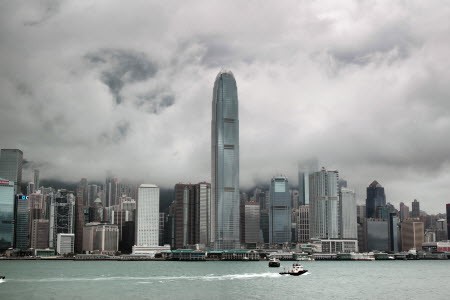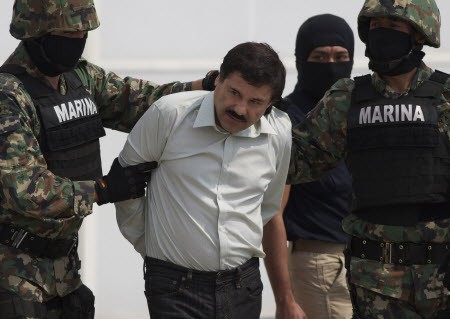- Joined
- Aug 12, 2013
- Messages
- 50
- Points
- 0
Global laundering ring pumped billions in Colombian drug money through Hong Kong banks: US prosecutors
PUBLISHED : Friday, 11 September, 2015, 8:44am
UPDATED : Friday, 11 September, 2015, 3:48pm
Niall Fraser
[email protected]

According to US prosecutors, billions in drug proceeds went via Hong Kong bank accounts to casinos, Chinese currency exchange houses, export companies and factories. Photo: Bloomberg
Banks in Hong Kong and the mainland are being used to launder the multi-billion dollar fortune reaped by South America's notorious drug cartels, according to the United States authorities.
In documents just unsealed in a US court, it is revealed that three Colombian nationals have been charged with helping to run a global money laundering network based in Guangzhou, which brought in at least US$5 billion (HK$39 billion) in Colombian drug proceeds routed from the United States, Mexico, Colombia, Panama, Guatemala and Canada, as well as parts of Africa and Europe.
The banks involved were not identified in the indictment which was unsealed on Thursday in a federal court in Brooklyn, New York.
The case has renewed concerns over how effective China's strict currency control regulations are and whether they actually fuel money laundering.

According to the indictment, the Guangzhou organisation used Chinese casinos, currency exchange houses, export companies and factories to receive billions of dollars in drug proceeds. The only "Chinese casinos" are in Macau. Photo: AFP
The charges come just months after the South China Morning Post revealed that a powerful new drug cartel was behind a surge in violence engulfing parts of Mexico was targeting Hong Kong's lucrative cocaine market, according to a top official at the Mexican National Chamber of Industry.
The Jalisco New Generation was reaping huge profits selling cocaine at a considerable mark-up in Hong Kong, according to chamber president Rodrigo Alpízar Vallejo. His comments come amid an increased push by Latin American drug cartels into the Asia-Pacific region in recent years.
Investigations by the Post have also found that the Sinaloa cartel - one of the world's biggest, most established syndicates - maintained both a corporate and criminal presence in Hong Kong. In addition to trafficking cocaine to the city, the group also ran front companies and bank accounts which it used to launder drug funds, according to official Mexican documents and interviews with law enforcement Post sources.
One of the three men named in yesterday's indictment, Henry Poveda, appeared in court on Thursday; the other two men, Christian Duque-Aristizabal and John Jairo Hincapie-Ramirez, are in custody in Panama and Colombia, respectively, awaiting extradition proceedings.

The Jalisco New Generation was reaping huge profits selling cocaine at a considerable mark-up in Hong Kong (pictured). Photo: SCMP Pictures
All three face a single count of conspiracy to launder money.
A fourth defendant connected to the case, a Hong Kong woman named Luo Yuling, previously pleaded guilty in April to conspiring to launder money.
Luo faces up to 20 years in prison when she is sentenced. She was arrested in September 2014 at Newark Liberty International Airport in New Jersey during a layover between Panama City and Hong Kong, according to prosecutors.
Assistant US Attorney Amir Toossi told US District Judge Carol Begley Amon that other defendants remain at large. They have not been publicly identified.
According to the indictment, the Guangzhou organisation used Chinese casinos, currency exchange houses, export companies and factories to receive billions of dollars in drug proceeds. The only "Chinese casinos" are in Macau.

Joaquin "El Chapo" Guzman, believed to be the head of MexicoÌs Sinaloa Cartel. Investigations by the Post have found that the Sinaloa cartel maintained both a corporate and criminal presence in Hong Kong. Photo: AP
The money travelled through accounts in Hong Kong and China and eventually was used to purchase products, often counterfeit consumer goods, that were shipped to Colombia and other countries, prosecutors said.
Poveda’s court-appointed lawyer, Mia Eisner-Grynberg, declined to comment on the case. She and Toossi told Amon they have engaged in preliminary plea discussions.
US authorities have pressed banks in recent years to improve anti-money laundering safeguards. In 2012, HSBC Holdings paid US$1.9 billion to resolve claims it allowed drug cartels in Mexico and Colombia to launder proceeds through its banks.
Jodi Avergun, an attorney at Cadwalader, Wickersham & Taft and a former US Drug Enforcement Administration official, said US authorities might be able to go after the Chinese banks if US-based branches were used in the alleged transactions.
“It really depends on what banks were involved, whether the money movement triggered any alarms,” she said.
Professor Lin Jiang, of Sun Yat-sen University, described money laundering in the Pearl River Delta area as being as common as normal as legitimate daily banking.
"It is happening everyday and more prevalent that you think in underground banks," Lin said.
"China's excessively strict foreign exchange controls are indirectly breeding money laundering, providing a huge demand for underground banks, " he said.
Lin said many factory manufacturers in the Delta often convert Hong Kong dollars and renminbi with underground banks for convenience while casinos in Macau offer receipts to give legitimacy to suspect currency flows.
"These are all very hard to prove or trace. The mainland government should consider allowing free currency conversion in a free trade zone, with a daily cap, to bring underground channels to light," he added.
With additional reporting by Reuters
